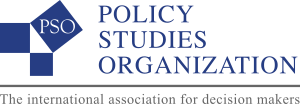The Middle East Dialogue has been postponed to next year.
With very great sadness we announce the postponement of the Middle East Dialogue on March 20th because of possible implications caused by the spread of the latest Coronavirus known as Covid19.
As a poor alternative, we pledge to quickly produce a collection of papers from those who were going to present at this conference, if they wish. This will permit us to keep a dialogue on pressing political, social, and economic issues in the Middle East going until we convene at our next gathering which is scheduled for Friday, 19 March 2021.
With so many coming from different countries, the possible consequence of more quarantines being applied as the countries impacted increases, including those coming being stranded here if return flights are canceled, are situations we must avoid.
With the WHO and our own Centers for Disease Control and Prevention (CDC) pressing alert buttons and warning that Covid19 has not as yet been contained, we have no way to know what actions the public health authorities here in Washington and abroad are contemplating, should the number of cases accelerate.
A strong advisory discouraging public meetings here would be devastating, and even if there is no government restriction, some may decide the risk is too great to attend.
The list of speakers this year has been the best we have ever had, absolutely outstanding, so this decision is a very difficult one.
We do encourage participants to provide us with their contributions no later than 20 March if they would like to contribute to this year’s proceedings.
And, of course, we urge your attendance at the 19 March conference next year!
It goes without saying that the decision to postpone this year’s meeting was heart-rending and was taken only after asking a number of participants and knowledgeable authorities.
Like you, we hope this public health alert will pass quickly, and we trust there is universal agreement that our first priority must be for the health and safety of all concerned.
Sincerely,
Gabriella FernandesDaniel GutierrezPaul Rich

Middle East Dialogue
Friday, March 20, 2020
The Historic Quaker Meetinghouse
2111 Florida Ave. NW, Washington, DC
Conference Program
8:00am
Registration with Continental Breakfast
* Please note there are no formal breakfast or lunch breaks, as food will be provided continuously throughout the day at no cost. Attendees may feel free to grab something to eat at any time during the day.
8:50-10:00am
Room 1
Victim Blaming: How a Gendered Practice Expands into International Relations
The Case of the Israeli Palestinian Conflict
Anna Garbar, New Story Leadership
Rawan Odeh, New Story Leadership
Lauren Hess, Georgetown University
Room 2
President Donald Trump’s Deal of the Century to Solve the Arab Israeli Conflict, and Prospects for Peace in the Middle East
Ahmed Y. Zohny, Coppin State University
Alternatives to the Trump “Peace for Prosperity” Vision for a Palestine State
Anthony Oberschall, University of North Carolina Chapel Hill
Room 3
Common Path and Divergent Patterns: Welfare Regimes in the Post-2011 Arab WorldAnis Ben Brik, Hamad Bin Khalifa University and Qatar Foundation, Qatar
10:10-11:20am
Room 1
Dynamics of Change in the Gulf and Maghreb
The Limits of Economic Diversification in Gulf Cooperation Council States: Geopolitics, Economics, and Security
Samuel Greene, Shepherd University
Sabhon Khairy, Pilot44 Labs
The United Arab Emirates: Importing Human Capital
Dania Thafer, Georgetown University
Nathan Toronto, Defense and Security Consultant
Popular Mobilization and History as Code in the Algerian 2019 Hirak Movement
Elizabeth Perego, Shepherd University
Ideational Security: The Case of Qatar
AJ Nolte, Regent University
The Algerian Transition in Comparative Context
Samuel Greene and Elizabeth Perego, Shepherd University
Room 2
Retooled Regimes: Restrictions at Home, Ambition Abroad
Transnational Political Threats and International Conflict
Matthew Timmerman, American University
Civil Society Advocacy in a Restrictive Environment
Hatem Zayed, American University
Regional Space Powers: Jurisdiction, Effective Control, and State Expansion into Outer Space
Andrew Hagopian, American University
Room 3
How Did The U.S. Use and Betray Syrian Kurds?
Mohammed M. A. Ahmed, Ahmed Foundation for Kurdish Studies
Sectarianism in the Syrian Civil War
Radwan Ziadeh, Middle East Arab Center Washington D.C
11:30-12:40pm
Keynote Speaker:
The Ambassador of the Kingdom of Bahrain to the United States, His Excellency Shaikh Abdullah bin Rashid Al Khalifa in conversation with Alon Ben-Meir, professor and Senior Fellow at New York University’s Center for Global Affairs and Senior Fellow at the World Policy Institute.
12:50-2:00pm
Room 1
Youth Peacebuilding in the Middle East: Considerations to Support Research and Empowerment through Education
Janette Neumann and Romi Viana, Claremont Graduate University
Room 2
The Global Contextualization of Egyptian Populism(s): Comparing the Rhetoric of Western and Egyptian Political Actors
Sahar Khamis and Randall Fowler, University of Maryland, College Park
Room 3
Strategic Consequences of the Termination of Soleimani
Shahram Ahmadi Nasab Emran, Saint Louis University
Supporting the People of Iran Should be Part of the Maximum Pressure Strategy
Shahram Ahmadi Nasab Emran, Saint Louis University
2:10-3:20pm
Room 1
Political Transformations and New Challenges to Democracy in the Middle East: Underlying Philosophy and Relevant Case Studies
Chair and Discussant: Muqtedar Khan
Islamic Political Philosophy: A Critical Genealogy
Muqtedar Khan, University of Delaware
The Role of State-Controlled Media in Turkey after the 2016 Coup Attempt
Olga Gerasimenko, University of Delaware
Opening Pandora’s Box: The Implications of Consensus Among Key Political Actors on Civil War Recurrence: Examples of Philippines, Colombia, and Turkey
Isa Haskologlu,University of Delaware
15th July 2016 Coup Attempt and the Transformation of Turkish Intelligence Community
Ahmet Ates,University of Delaware
Populist Foreign Policy-making: A Comparative Study on Trump and Erdoğan’s Policies on Israel-Palestine Conflict
İbrahim Enes Aksu, University of Delaware
Room 2
China and the Arab Revolutions
The Arab Revolutions in China’s View
Anchi Hoh, Library of Congress
China’s Policies on Yemen’s Civil War and Humanitarian Crisis
I-wei Jennifer Chang, Global Taiwan Institute
Room 3
Returning Islamist Foreign Fighters: Threats and Challenges to the West
Elena Pokalova, National Defense University
Examining the Influence of the Islamic Jurisprudence on the Decision of Acquiring and Using the Chemical Weapon by ISIS and Jabhat al-Nusra
Suha Hassen, George Mason University
3:30-4:40pm
Room 1
From Beirut to Jerusalem… to Hiroshima? The Middle East, Peace Building and Japan’s “City of Peace”
Ray Matsumiya, University of the Middle East Project
The Trump Administration’s Failed Policy Toward Iran: Conflicts of InterestYousof Azizi, Virginia Tech School of Public and International Affairs
Room 2
STEM Education in the West Bank, Palestine
Amir M. Rashed, Claremont Graduate University
The Spirit of Leadership: From Charisma to Mana
Whitney F. Martinez, Claremont Graduate University
